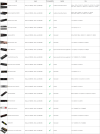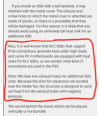PS5 M.2 internal drive support OUT NOW!
- Thread starter TeKPhaN
- Start date
You are using an out of date browser. It may not display this or other websites correctly.
You should upgrade or use an alternative browser.
You should upgrade or use an alternative browser.
So basically DF says PS5 is an inferior way of adding storage to your next gen console compared to the competition.
So basically DF says PS5 is an inferior way of adding storage to your next gen console compared to the competition.
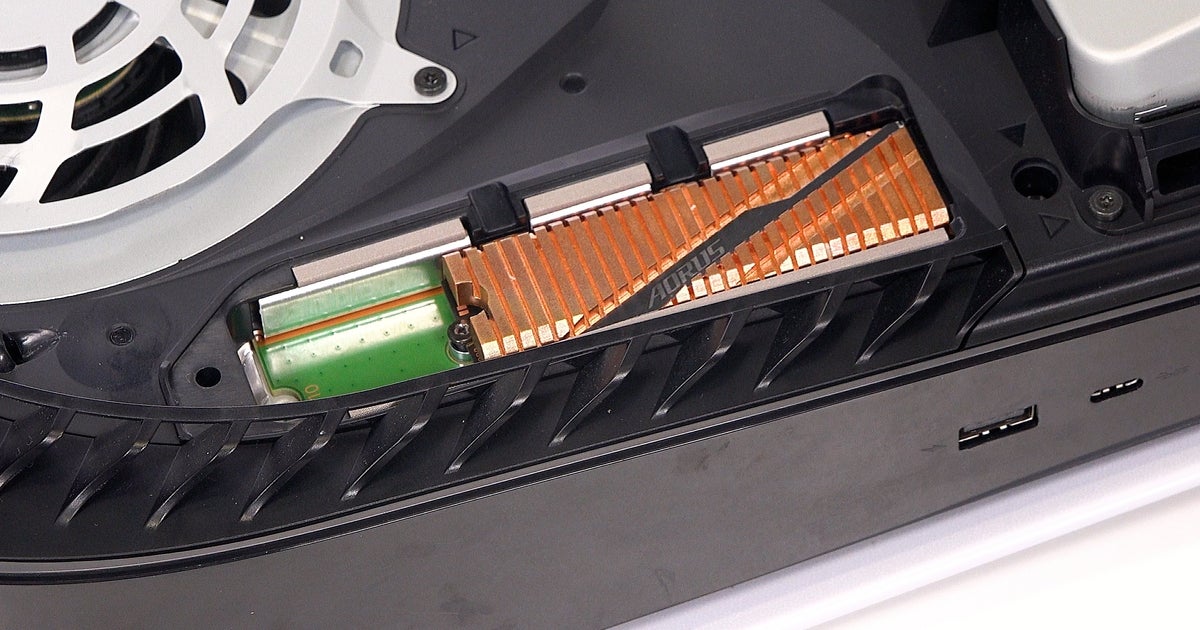
PS5 Firmware Beta 2.0 tested: M.2 NVMe storage upgrades - can they match the stock drive?
PlayStation 5's next major firmware update is coming soon and it's set to deliver some key changes to the system's capa…
Basically DF says the news is good: PS5 may well be built around a custom solid-state storage solution, but a good PCIe Gen 4 SSD can match and in some scenarios actually exceed the performance of the internal solution, and works just as well on the most demanding storage-heavy game we've currently got to test. So faster spec drives may give even better performance if early tests indicate anything as the gen goes on.
Here's an interesting bit - seems like writing speeds are capped at a system-level on the PS5 at around 0.23gb/second when transferring games back to the internal SSD whereas copying games from internal SSD over to faster spec SSD's will be as fast as the specs of the expansion SSD (the higher the write speeds of the expansion SSD, the faster you can copy games over to the expansion SSD).
Our final tests were all about raw transfer speeds, where moving games between PS5's stock drive and the M.2 expansion is a perfect case study. Picking Cyberpunk 2077 gives us a meaty 101GB install to shuttle between these two drives. After extensive testing, it became clear that writing to the M.2 drive happens at a much more rapid pace than copying the same data back to the internal drive. For example, transferring Cyberpunk from PS5's internal SSD to the M.2 SSD takes just one minute and 11 seconds. That's an average rate of 1.42GB/s - an incredible speed given the sheer size of CDPR's game. Transfer speeds do vary according to content though, and so for example, copying Battlefield 5 from internal storage yielded a 0.87GB/s average transfer speed, while Final Fantasy 15 produced a 0.82GB/s average.
But if we transfer the game back, from the M.2 SSD to the PS5 stock drive, it takes far longer. The count comes in at seven minutes, 18 seconds - at a transfer rate of just 0.23GB/s. It's a huge difference, and one that bears out in transferring other big games - like Final Fantasy 15 and Battlefield 5. Transferring to the M.2 SSD will always be faster than it will be writing back to the internal drive, but generally speaking that is fine: a console SSD does not need tremendous write speeds. It's worth noting that while very slow, it's actually relatively fast when stacked up against copying back to the internal SSD via a USB-based option, as the table below reveals. Copying Battlefield 5 and FF15 back to internal storage delivered the same 0.23GB/s transfer rate average, suggesting some kind of system level cap.
Transferring Cyberpunk from Xbox's stock SSD to a Seagate expansion card, the best case puts average transfer speeds at 0.69GB/s, and at worst 0.42GB/s in transferring the exact same data. In all cases, it's much slower than the PS5 transfer test to its M.2 expansion. Meanwhile, the reverse journey on Series X - transferring Cyberpunk from its Seagate expansion card to its internal SSD - gives a transfer rate of 0.67GB/s at best and 0.55GB/s at worst. A mixed bag of results then: writing to the Seagate storage card was much slower than copying a game to the M2 drive on PS5. However, in copying the data back to the internal SSD, Xbox Series X was always significantly faster.
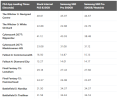
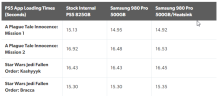


PS5 Firmware Beta 2.0 tested: M.2 NVMe storage upgrades - can they match the stock drive?
PlayStation 5's next major firmware update is coming soon and it's set to deliver some key changes to the system's capa…www.eurogamer.net
Basically DF says the news is good: PS5 may well be built around a custom solid-state storage solution, but a good PCIe Gen 4 SSD can match and in some scenarios actually exceed the performance of the internal solution, and works just as well on the most demanding storage-heavy game we've currently got to test. So faster spec drives may give even better performance if early tests indicate anything as the gen goes on.
Here's an interesting bit - seems like writing speeds are capped at a system-level on the PS5 at around 0.23gb/second when transferring games back to the internal SSD whereas copying games from internal SSD over to faster spec SSD's will be as fast as the specs of the expansion SSD (the higher the write speeds of the expansion SSD, the faster you can copy games over to the expansion SSD).
View attachment 6211
View attachment 6212
View attachment 6213

I can add 2TB at one time and not worry about it again, with xbox if you want to add 2TB you have to keep swapping cards and also have to remember which games are on which card. Neither one is hard to do and both have plusses and minuses, not everything has to be a competition for crying out loud lol. Also most of the cards you'll be using on PS5 have 5 year warranties, those seagate expansion cards only have 2 years and from what everyone says seagate doesn't make the most reliable products.So basically DF says PS5 is an inferior way of adding storage to your next gen console compared to the competition.
Go outside damn it! I don't think I'd be in the house if I had this outside my door lol.
Last edited:
I can add 2TB at one time and not worry about it again, with xbox if you want to add 2TB you have to keep swapping cards and also have to remember which games are on which card. Neither one is hard to do and both have plusses and minuses, not everything has to be a competition for crying out loud lol. Also most of the cards you'll be using on PS5 have 5 year warranties, those seagate expansion cards only have 2 years and from what everyone says seagate doesn't make the most reliable products.
Xbox fans are happy overpaying for a slower performance expansion SSD. Go figure.
The PS5 expansion SSD does all the things as expected and more so I'm pretty happy about how the beta is going so far.
not everything has to be a competition for crying out loud lol.

What I paid for 2TB was probably equivalent to two of the xbox cards ($10 more) but I don't have to worry about swapping cards which is nice and I'll have over twice as long on the warranty so that's a positive as well. It's also a higher quality more performant piece of equipment but it's also not proprietary so I'm sure that helps with the costs.Xbox fans are happy overpaying for a slower performance expansion SSD. Go figure.
The PS5 expansion SSD does all the things as expected and more so I'm pretty happy about how the beta is going so far.
What I paid for 2TB was probably equivalent to two of the xbox cards ($10 more) so it's basically the same pricewise right now but I don't have to worry about swapping cards which is nice and I'll have over twice as long on the warranty so that's a positive as well.
You also have the potential gains your faster expansion SSD could have on PS5 games. Next gen is just starting and I'm sure optimizations will only get better for these newer SSD tech. You know that you will get at least the same performance as the internal SSD game performance wise. Same can't be said for the Xbox side unfortunately as they are already seeing slower performances compared to their internal SSD. Yakuza like a Dragon loaded 8 seconds slower on their expansion over the internal SSD (37 vs 45 seconds).
I wonder why that was such a big difference? that's not the case for any other game is it? I mean some may be like a second different or something but that seems like more than I've heard before.You also have the potential gains your faster expansion SSD could have on PS5 games. Next gen is just starting and I'm sure optimizations will only get better for these newer SSD tech. You know that you will get at least the same performance as the internal SSD game performance wise. Same can't be said for the Xbox side unfortunately as they are already seeing slower performances compared to their internal SSD. Yakuza like a Dragon loaded 8 seconds slower on their expansion over the internal SSD (37 vs 45 seconds).
I wonder why that was such a big difference? that's not the case for any other game is it? I mean some may be like a second different or something but that seems like more than I've heard before.
TechRadar and PCMag both concluded the expansion is slower than the internal.
Could be related to their architecture.
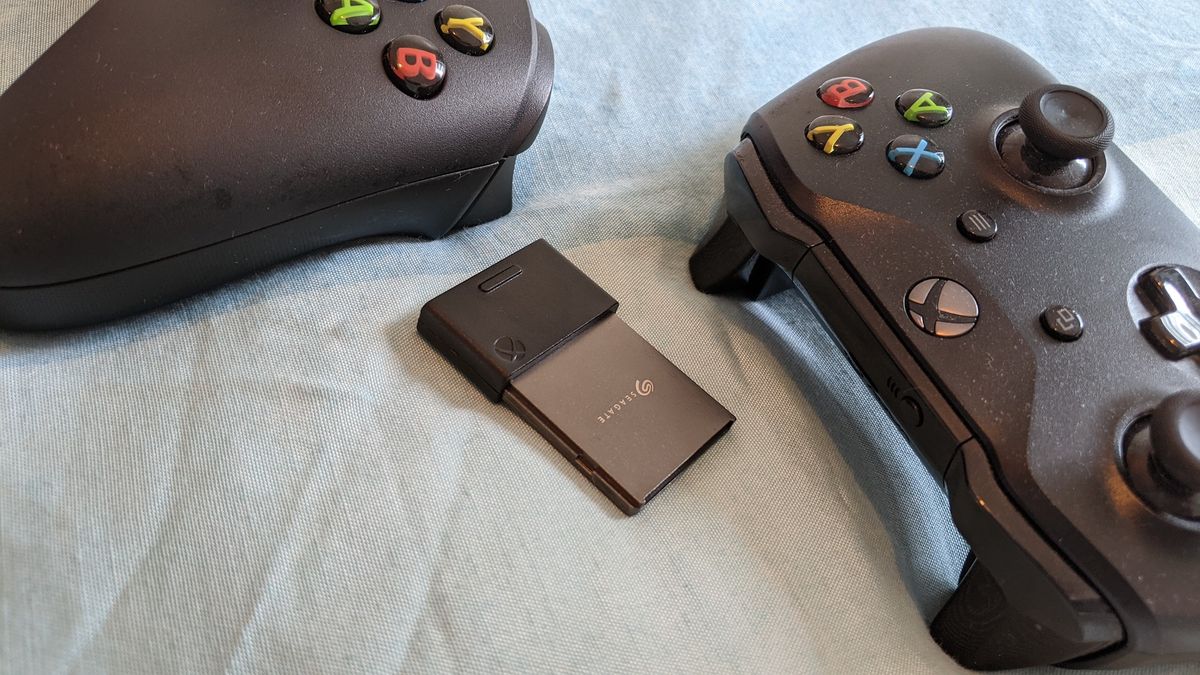
Seagate Xbox Storage Expansion Card review
The Seagate Xbox Storage Expansion Card is a must-have for Game Pass-loving Xbox Series X or Series S gamers

Seagate Storage Expansion Card for Xbox Series X|S Review
The Seagate Storage Expansion Card is an easy, if pricey, way to add 1TB of storage to your Xbox Series S or X, while nearly matching the internal SSD's fast performance.
If they did say this....they would be lying.So basically DF says PS5 is an inferior way of adding storage to your next gen console compared to the competition.
I don't know if not having the cover off is a good idea.
I also can't see the 2 holes that people are claiming the air flow goes through.
I don't know if not having the cover off is a good idea.
I also can't see the 2 holes that people are claiming the air flow goes through.
I believe Sony says to put the cover back on after installing the SSD to optimize airflow. Probably to build a vacuum of some sort to suck the hot air away.
It's designed to have the cover on so I don't know why people think leaving it off is a good idea, all of these tests so far with people using it with the cover on seem to show that as long as you have a heatsink everything works as it should, why leave it open for dust etc to get into that area?
Don't see no holes though.
I read somewhere that the PS5 uses negative airflow to cool SSD expansion but the intricate details I'm not sure how.
More tests.
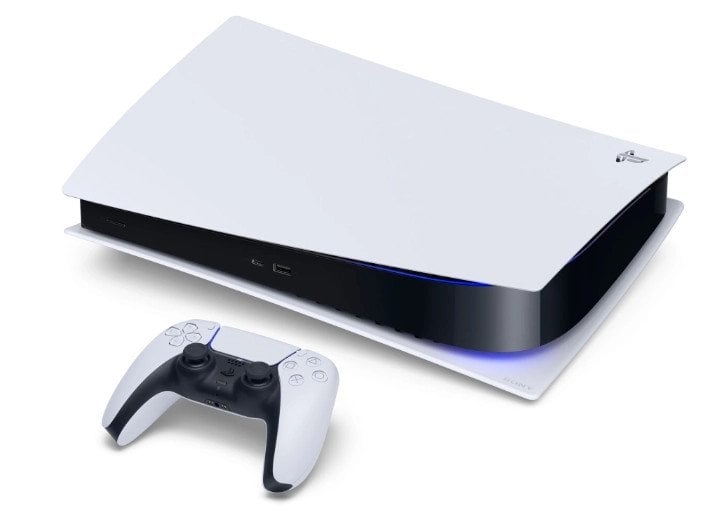
 hothardware.com
hothardware.com
DanCTapirson stated that with an ambient temperature of 25 degrees Celsius, idle temperatures for the 980 Pro hovered between 55 to 59 degrees. However, temperatures while writing (i.e., transferring games to the SSD) soared to 74 degrees. Read temperatures weren't much lower at 72 degrees while playing Returnal.
Given these results, he decided to slap on a double-sided aluminum heatsink that was within the clearance specs provided by Sony. With this modification, idle temperatures dropped to around 44 degrees, while read/write temperatures settled at 50 degrees, which is a dramatic improvement.
As for actual performance, the Samsung 980 Pro was very comparable to the PlayStation 5's internal SSD. Here are DanCTapirson's results in both Returnal and Ratchet and Clank:
Returnal (PlayStation 5 Primary SSD)

Sony PS5 Benchmarked With Samsung 980 Pro PCIe 4 SSD And The Early Results Are Promising
Now that more PlayStation 5 users are installing the beta software, they're sharing their experience on how performance is shaping up compared to the default SSD.
DanCTapirson stated that with an ambient temperature of 25 degrees Celsius, idle temperatures for the 980 Pro hovered between 55 to 59 degrees. However, temperatures while writing (i.e., transferring games to the SSD) soared to 74 degrees. Read temperatures weren't much lower at 72 degrees while playing Returnal.
Given these results, he decided to slap on a double-sided aluminum heatsink that was within the clearance specs provided by Sony. With this modification, idle temperatures dropped to around 44 degrees, while read/write temperatures settled at 50 degrees, which is a dramatic improvement.
As for actual performance, the Samsung 980 Pro was very comparable to the PlayStation 5's internal SSD. Here are DanCTapirson's results in both Returnal and Ratchet and Clank:
Returnal (PlayStation 5 Primary SSD)
- Time to game 13.45s
- Time to game 13.37s
- Time to menu 7.51s
- Time to game 1.79s
- Time to menu 7.55s
- Time to game 1.86s
This site tests the WD Black SN850, Seagate Firecuda 530, Sabrent Rocket 4 Plus, Samsung 980 Pro. All looking good matching or exceeding the internal PS5 SSD. As this becomes official and the gen rolls on, maybe you'll get to make your PS5 perform even faster than stock by expanding with even faster SSDs which is great news.
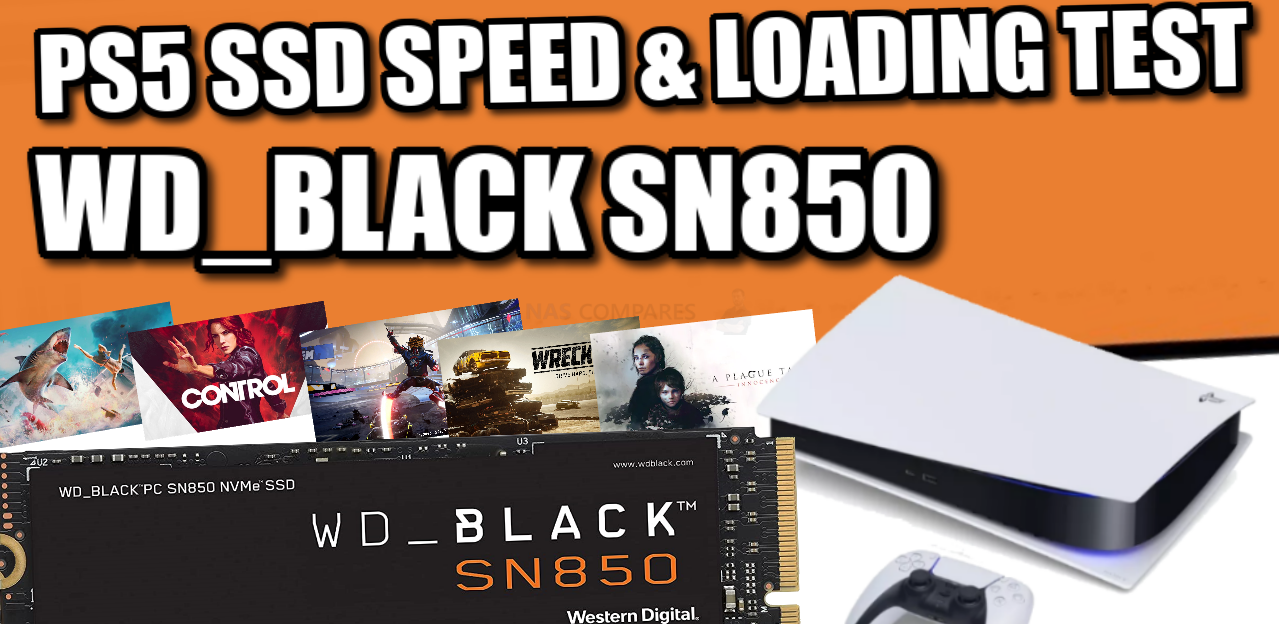
 nascompares.com
nascompares.com
The WD Black SN850 is unquestionable a great PS5 SSD choice! Even without heavy market recommendations, it breezed through the preliminary testing and was even seen to exceed the PS5 internal SSD at points from a 100% even start. Clearly, the performance you have will scale depending on the capacity you choose, but even the 500GB has read performance that is more than enough to run your top tier games from. As mentioned, endurance on the WD Blck SN850, although a pinch lower than a number of other PCIe4 M.2 NVMe SSDs on the market right now (between 0.8 and 4.0 less DWPD), but is of little significance to anyone but the highest level professional gamers streamers (and even then if/when Sony open up the storage use to more than warm game storage). If you are looking for a great performing, best priced and highest recommended SSD for your PS5 SSD expansion upgrade, the WD Black is practically unbeatable!
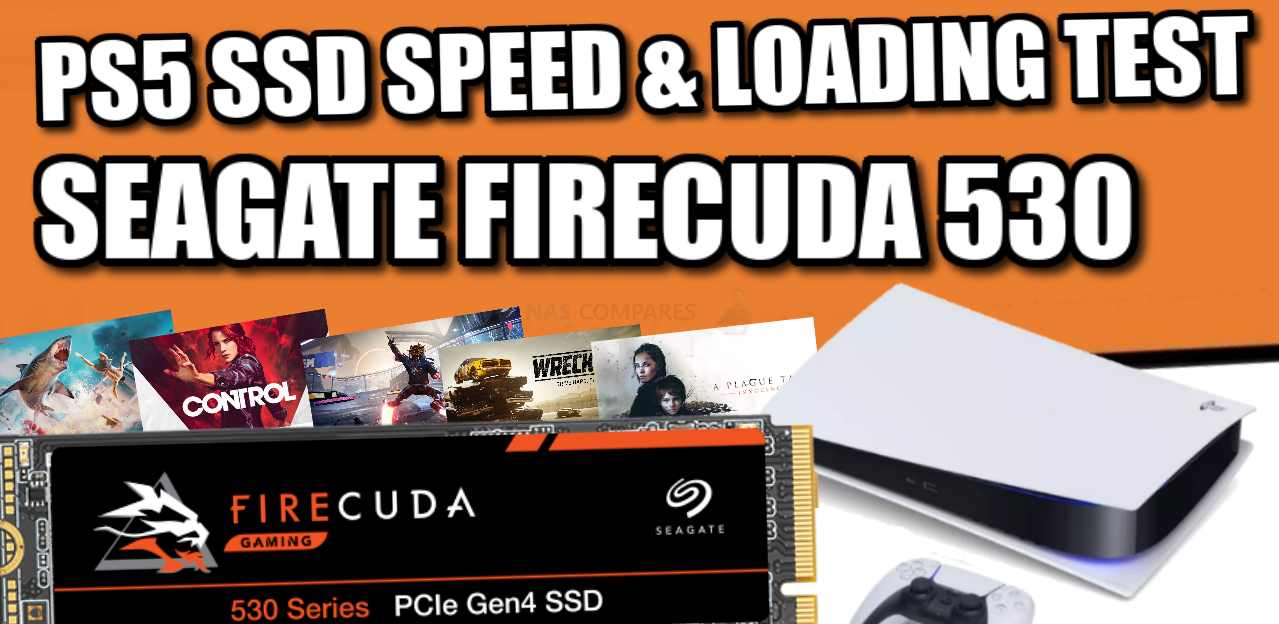
 nascompares.com
nascompares.com
It will not come as a massive shock that I definitely recommend the Seagate Firecuda 530 SSD for use in the PS5 expansion slot. Since the M.2 NVMe upgrade and expansion slot of the PS5 was first enabled, there has been ALOT of compatible PCIe Gen 4 SSDs that meet the minimum recommended specifications of the system. So, why should you spend more on the Seagate Firecuda 530? It is good, but is it THAT good? I would say yes. Although at the moment, the focus on write activity is low/none, that might well change in future if recordings, streaming and large scale online services (where drive activity needs to balance read/write simultaneously) allow m.2 SSD access as a target. Additionally, you cannot overlook the added endurance of this drive that will likely outlive your system, or at least withstand the hammering of use from eSports and professional gamers. Finally, there are the 3yrs professional Seagate Rescue Recovery services that allow users to access free data recovery services from the drive in the event of it failing through no fault of your own, power surges and corruption. I have already reviewed this service here and I do genuinely recommend it personally. Seagate is clearly focusing on ENDURANCE and LONGEVITY on their choice of SSD here for gamers and does it, whilst still providing some of the highest performance available from an m.2 PCIe4 NVMe SSD. Impressive.
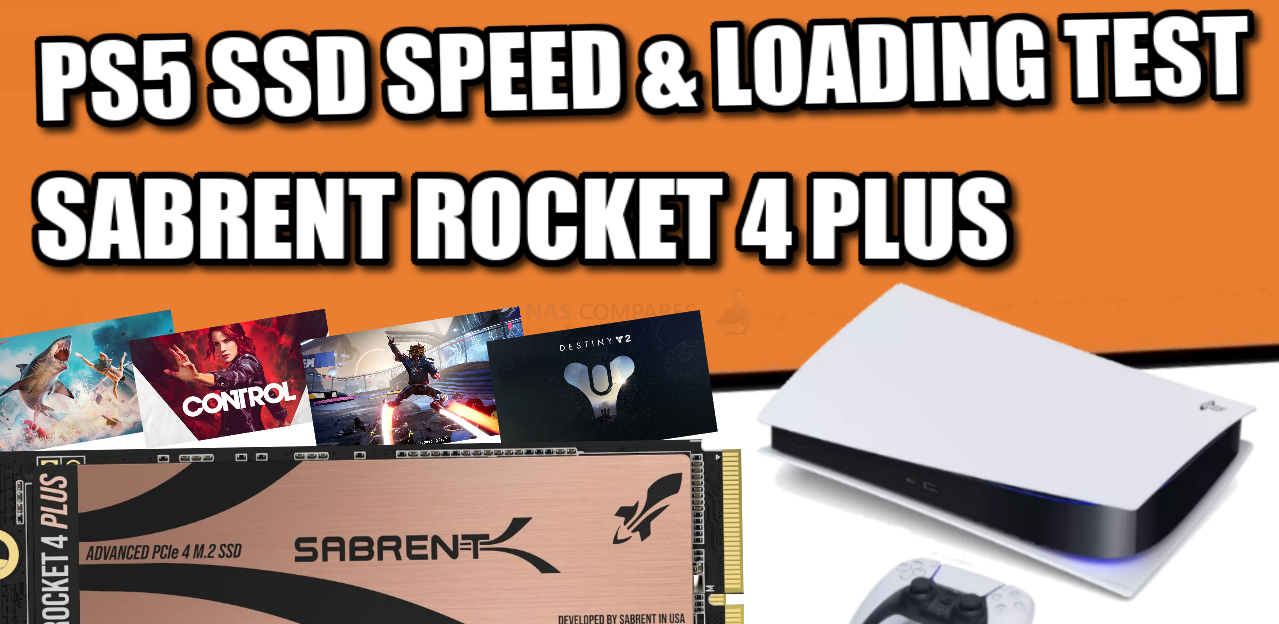
 nascompares.com
nascompares.com
Of all the SSDs I have tested for the PS5 so far, the Sabrent Rocket 4 Plus is the one that I was most surprised about. We take for granted that bigger names in Samsung, Seagate and WD will produce fast drives and sometimes overlook lesser-known brands. However, the Sabrent Rocket Plus was able to match the performance of the WD Black SN850 and Seagate Firecuda 530 in my testing of these mid-range games and I am happy to recommend it. In further testing next week, we will be looking at much more extreme loading games (Spiderman Miles Morales, Demon Souls and Ratchet and Clank) which make much, MUCH more use of the faster speed of the PS5 internal SSD. In those articles and videos we will be facing the Sabrent Rocket 4 Plus against the Samsung 980 Pro, WD Black SN850 and Seagate Firecuda 530 – so stay tuned for that. However, right now, I can recommend the Sabrent Rocket 4 Plus as a great SSD for upgrading the storage of your PS5 via the expansion slot!
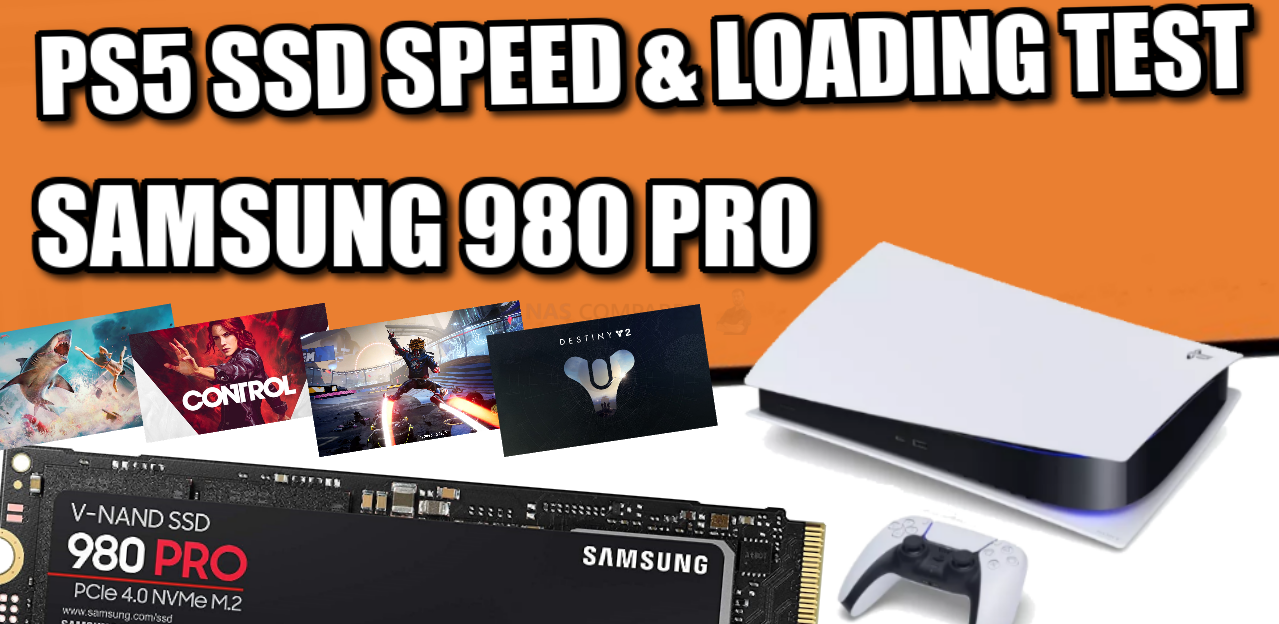
 nascompares.com
nascompares.com
Overall, I can happily recommend the Samsung 980 Pro (even in as little as 250GB) for the PS5 SSD storage expansion. It performed all the checks well, arrived with an impressive internal performance benchmark at start-up and regardless of whether you get the smallest or the biggest drive, I think you will have an SSD that will store and play your games remarkably well during the lifespan of your PS5. You can watch the full performance and comparison of the Samsung 980 Pro and PS5 Internal Storage in the video below:

WD Black SN850 PS5 SSD Expansion Test
Testing the WD Black SN850 SSD on the PS5 Yes, it's time for another PS5 SSD Expansion Test and this time it is the drive that received one of the most high profile recommendations so far (from Mark Cerny, designer and programmer, involved in the development of the PS5 itself), the WD Black SN850.
 nascompares.com
nascompares.com
The WD Black SN850 is unquestionable a great PS5 SSD choice! Even without heavy market recommendations, it breezed through the preliminary testing and was even seen to exceed the PS5 internal SSD at points from a 100% even start. Clearly, the performance you have will scale depending on the capacity you choose, but even the 500GB has read performance that is more than enough to run your top tier games from. As mentioned, endurance on the WD Blck SN850, although a pinch lower than a number of other PCIe4 M.2 NVMe SSDs on the market right now (between 0.8 and 4.0 less DWPD), but is of little significance to anyone but the highest level professional gamers streamers (and even then if/when Sony open up the storage use to more than warm game storage). If you are looking for a great performing, best priced and highest recommended SSD for your PS5 SSD expansion upgrade, the WD Black is practically unbeatable!

Seagate Firecuda 530 PS5 SSD Expansion Test
Testing the Seagate Firecuda 530 SSD on the PS5 Time for another PS5 SSD Expansion Test and this time it is one of the hottest pick for the best M.2 NVMe upgrade drives, the Seagate Firecuda 530. Now that Sony has enabled the ability to expand the storage of the Playstation 5 in the latest software
 nascompares.com
nascompares.com
It will not come as a massive shock that I definitely recommend the Seagate Firecuda 530 SSD for use in the PS5 expansion slot. Since the M.2 NVMe upgrade and expansion slot of the PS5 was first enabled, there has been ALOT of compatible PCIe Gen 4 SSDs that meet the minimum recommended specifications of the system. So, why should you spend more on the Seagate Firecuda 530? It is good, but is it THAT good? I would say yes. Although at the moment, the focus on write activity is low/none, that might well change in future if recordings, streaming and large scale online services (where drive activity needs to balance read/write simultaneously) allow m.2 SSD access as a target. Additionally, you cannot overlook the added endurance of this drive that will likely outlive your system, or at least withstand the hammering of use from eSports and professional gamers. Finally, there are the 3yrs professional Seagate Rescue Recovery services that allow users to access free data recovery services from the drive in the event of it failing through no fault of your own, power surges and corruption. I have already reviewed this service here and I do genuinely recommend it personally. Seagate is clearly focusing on ENDURANCE and LONGEVITY on their choice of SSD here for gamers and does it, whilst still providing some of the highest performance available from an m.2 PCIe4 NVMe SSD. Impressive.

Sabrent Rocket 4 Plus PS5 SSD Expansion Test
Testing the Sabrent Rocket 4 Plus SSD on the PS5 Now that Sony has enabled the ability to expand the storage of the Playstation 5 in the latest software update (in beta at the time of writing), the range of potential PCIe M.2 SSDs that PS5 gamers are able to choose from is surprisingly vast. The mi
 nascompares.com
nascompares.com
Of all the SSDs I have tested for the PS5 so far, the Sabrent Rocket 4 Plus is the one that I was most surprised about. We take for granted that bigger names in Samsung, Seagate and WD will produce fast drives and sometimes overlook lesser-known brands. However, the Sabrent Rocket Plus was able to match the performance of the WD Black SN850 and Seagate Firecuda 530 in my testing of these mid-range games and I am happy to recommend it. In further testing next week, we will be looking at much more extreme loading games (Spiderman Miles Morales, Demon Souls and Ratchet and Clank) which make much, MUCH more use of the faster speed of the PS5 internal SSD. In those articles and videos we will be facing the Sabrent Rocket 4 Plus against the Samsung 980 Pro, WD Black SN850 and Seagate Firecuda 530 – so stay tuned for that. However, right now, I can recommend the Sabrent Rocket 4 Plus as a great SSD for upgrading the storage of your PS5 via the expansion slot!

Samsung 980 Pro PS5 SSD Expansion Test
Testing the Samsung 980 Pro SSD on the PS5 Now that Sony has enabled the ability to expand the storage of the Playstation 5 in the latest software update (in beta at the time of writing), the range of potential PCIe M.2 SSDs that PS5 gamers are able to choose from is surprisingly vast. The minimum
 nascompares.com
nascompares.com
Overall, I can happily recommend the Samsung 980 Pro (even in as little as 250GB) for the PS5 SSD storage expansion. It performed all the checks well, arrived with an impressive internal performance benchmark at start-up and regardless of whether you get the smallest or the biggest drive, I think you will have an SSD that will store and play your games remarkably well during the lifespan of your PS5. You can watch the full performance and comparison of the Samsung 980 Pro and PS5 Internal Storage in the video below:
He needs to test the faster,cooler temperatures Aorus 7000s 2TB version.This site tests the WD Black SN850, Seagate Firecuda 530, Sabrent Rocket 4 Plus, Samsung 980 Pro. All looking good matching or exceeding the internal PS5 SSD. As this becomes official and the gen rolls on, maybe you'll get to make your PS5 perform even faster than stock by expanding with even faster SSDs which is great news.

WD Black SN850 PS5 SSD Expansion Test
Testing the WD Black SN850 SSD on the PS5 Yes, it's time for another PS5 SSD Expansion Test and this time it is the drive that received one of the most high profile recommendations so far (from Mark Cerny, designer and programmer, involved in the development of the PS5 itself), the WD Black SN850.nascompares.com
The WD Black SN850 is unquestionable a great PS5 SSD choice! Even without heavy market recommendations, it breezed through the preliminary testing and was even seen to exceed the PS5 internal SSD at points from a 100% even start. Clearly, the performance you have will scale depending on the capacity you choose, but even the 500GB has read performance that is more than enough to run your top tier games from. As mentioned, endurance on the WD Blck SN850, although a pinch lower than a number of other PCIe4 M.2 NVMe SSDs on the market right now (between 0.8 and 4.0 less DWPD), but is of little significance to anyone but the highest level professional gamers streamers (and even then if/when Sony open up the storage use to more than warm game storage). If you are looking for a great performing, best priced and highest recommended SSD for your PS5 SSD expansion upgrade, the WD Black is practically unbeatable!

Seagate Firecuda 530 PS5 SSD Expansion Test
Testing the Seagate Firecuda 530 SSD on the PS5 Time for another PS5 SSD Expansion Test and this time it is one of the hottest pick for the best M.2 NVMe upgrade drives, the Seagate Firecuda 530. Now that Sony has enabled the ability to expand the storage of the Playstation 5 in the latest softwarenascompares.com
It will not come as a massive shock that I definitely recommend the Seagate Firecuda 530 SSD for use in the PS5 expansion slot. Since the M.2 NVMe upgrade and expansion slot of the PS5 was first enabled, there has been ALOT of compatible PCIe Gen 4 SSDs that meet the minimum recommended specifications of the system. So, why should you spend more on the Seagate Firecuda 530? It is good, but is it THAT good? I would say yes. Although at the moment, the focus on write activity is low/none, that might well change in future if recordings, streaming and large scale online services (where drive activity needs to balance read/write simultaneously) allow m.2 SSD access as a target. Additionally, you cannot overlook the added endurance of this drive that will likely outlive your system, or at least withstand the hammering of use from eSports and professional gamers. Finally, there are the 3yrs professional Seagate Rescue Recovery services that allow users to access free data recovery services from the drive in the event of it failing through no fault of your own, power surges and corruption. I have already reviewed this service here and I do genuinely recommend it personally. Seagate is clearly focusing on ENDURANCE and LONGEVITY on their choice of SSD here for gamers and does it, whilst still providing some of the highest performance available from an m.2 PCIe4 NVMe SSD. Impressive.

Sabrent Rocket 4 Plus PS5 SSD Expansion Test
Testing the Sabrent Rocket 4 Plus SSD on the PS5 Now that Sony has enabled the ability to expand the storage of the Playstation 5 in the latest software update (in beta at the time of writing), the range of potential PCIe M.2 SSDs that PS5 gamers are able to choose from is surprisingly vast. The minascompares.com
Of all the SSDs I have tested for the PS5 so far, the Sabrent Rocket 4 Plus is the one that I was most surprised about. We take for granted that bigger names in Samsung, Seagate and WD will produce fast drives and sometimes overlook lesser-known brands. However, the Sabrent Rocket Plus was able to match the performance of the WD Black SN850 and Seagate Firecuda 530 in my testing of these mid-range games and I am happy to recommend it. In further testing next week, we will be looking at much more extreme loading games (Spiderman Miles Morales, Demon Souls and Ratchet and Clank) which make much, MUCH more use of the faster speed of the PS5 internal SSD. In those articles and videos we will be facing the Sabrent Rocket 4 Plus against the Samsung 980 Pro, WD Black SN850 and Seagate Firecuda 530 – so stay tuned for that. However, right now, I can recommend the Sabrent Rocket 4 Plus as a great SSD for upgrading the storage of your PS5 via the expansion slot!

Samsung 980 Pro PS5 SSD Expansion Test
Testing the Samsung 980 Pro SSD on the PS5 Now that Sony has enabled the ability to expand the storage of the Playstation 5 in the latest software update (in beta at the time of writing), the range of potential PCIe M.2 SSDs that PS5 gamers are able to choose from is surprisingly vast. The minimumnascompares.com
Overall, I can happily recommend the Samsung 980 Pro (even in as little as 250GB) for the PS5 SSD storage expansion. It performed all the checks well, arrived with an impressive internal performance benchmark at start-up and regardless of whether you get the smallest or the biggest drive, I think you will have an SSD that will store and play your games remarkably well during the lifespan of your PS5. You can watch the full performance and comparison of the Samsung 980 Pro and PS5 Internal Storage in the video below:
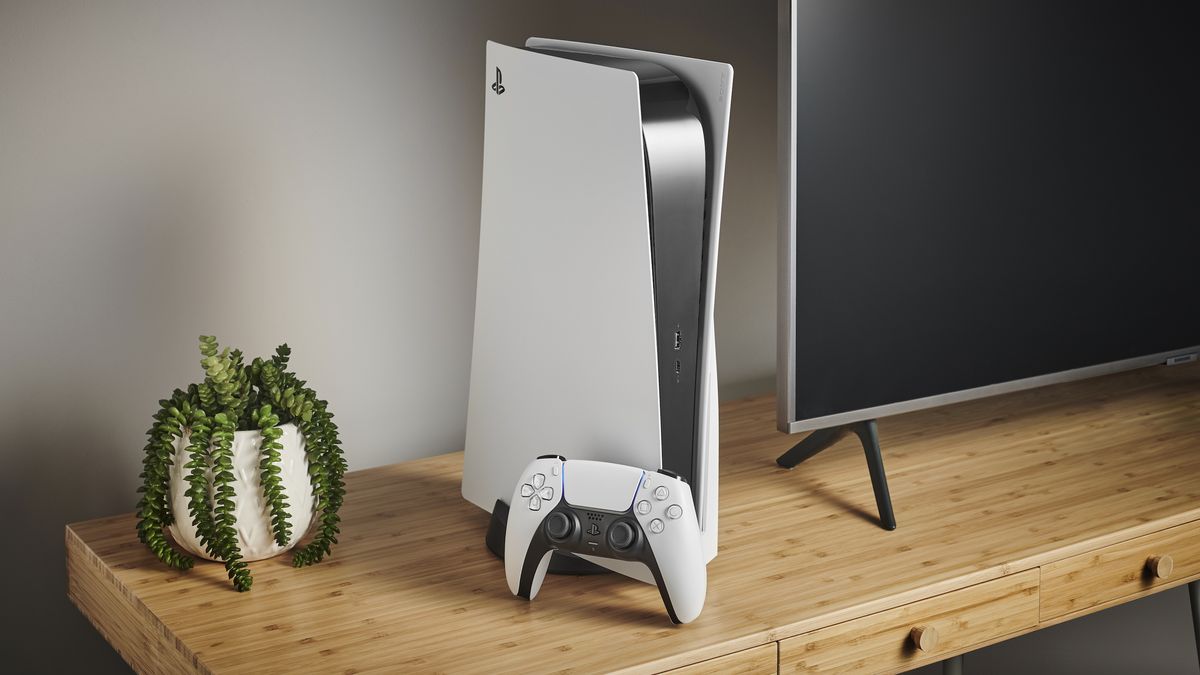
I upgraded my PS5 SSD — and the results were surprising
I spent $270 to expand my PS5 SSD, here’s how it went
If a 11 year old can install the expansion SSD, you should have no problems.
My six year old niece built her computer, beating my seven year old nephew by months. Granted my brother in law and I were their to assist them… it was really sumple setup but they still did it
Is two holes enough, or is that new ps5 variant gonna have more?
TeKPhaN did ya ever find those holes on the unit?
I open and dust my PS5 once a month.Is two holes enough, or is that new ps5 variant gonna have more?
TeKPhaN did ya ever find those holes on the unit?
When I open it again I will check better.
I feel like I should open mine up, even though I rarely play it.I open and dust my PS5 once a month.
When I open it again I will check better.
Do those designated dust ports help out a lot?

